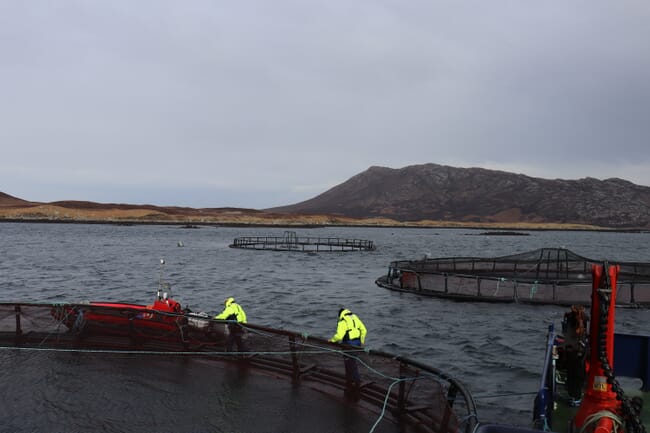
The Scottish Salmon Producers Organisation (SSPO) has published figures showing the losses incurred to the sector – which produces the UK’s top food export – because of the extra paperwork, the new layers of bureaucracy, the delays and the confusion caused by the end of the Brexit transition phase.
The publication coincides with the second meeting of the UK and Scottish government joint task force on seafood exports, a task force which was set up at the urging of the SSPO.
The figures published today were presented to the task force this morning by Tavish Scott, chief executive of the SSPO.
Since January 1 2021, when the UK left the Brexit transition phase and exporters had to deal with the full effects of not being in the European single market, salmon farmers have experienced considerable delays, some of which have resulted in lost orders, failed deliveries, unharvested fish and heavily discounted products at market.
The sector has experienced an immediate loss of sales to the tune of 1,500 tonnes of product.
Scotland’s salmon farmers prepared extensively for the changes and allocated additional resources to maintain the smooth and efficient supply process it previously enjoyed.
Scottish salmon farmers have also had no choice but to delay harvesting 700 tonnes of fish in order to minimise any of their high-quality product becoming spoiled or destroyed.
The sector has experienced various increasing costs which are unrelated to production, amounting to £200,000 in January alone. Such overheads are the cumulative result of additional export documents and resources, logistics costs, administrative and veterinary costs, and through lost custom as a result of reduce confidence in the supply timeline.
Scott said: “This cannot be the ‘new normal’. Our members cannot guarantee reliable delivery times to the European Union, which is our biggest overseas market. The systems need to be streamlined and a lighter touch adopted on all sides to make sure we can continue to serve our European customers as we have in the past. If not, they will go elsewhere and we will lose both trade and customers.
“We are calling on both the UK and Scottish governments to work together with us and with the supply chain to make sure there are no more blockages in the system which prevent our members from getting their fish to market on time.”



